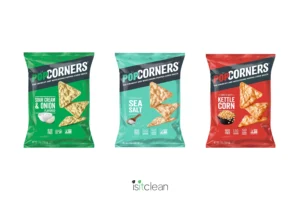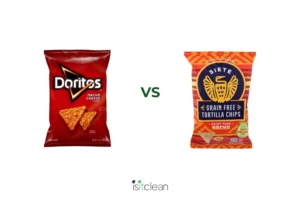
Acesulfame potassium is a zero-calorie sweetener that is added to many sugar-free…



Tapioca starch/flour is extracted from the cassava root through a process of washing, pulping, and squeezing out the starch, which is then ground into a fine powder. It has minimal nutritional value aside from being a rich source of carbohydrates and is commonly used as a gluten-free and grain-free alternative to wheat and other grains. It’s also used as a binding agent and thickener in foods like soups, puddings, and dough, among other items. Although tapioca is the starch from cassava, they have very different nutrition profiles and effects on the body.

While it is often considered an empty calorie because it has minimal nutritional value, it is a naturally occurring food that undergoes minimal processing and doesn’t seem to have adverse effects on the body. Additionally, tapioca starch acts as a prebiotic that may have beneficial effects on the gut microbiome. Raw cassava contains a toxic compound called cyanide, which can be harmful if consumed in large quantities or prepared improperly. Improperly processed tapioca could contribute to cyanide poisoning.
Health is like a bank account, certain ingredients make a deposit into your health bank, meaning they add to
your health. Certain ingredients withdraw from your health bank. We want health promoting ingredients in our diet. To keep things simple, we rate ingredients on a green, yellow, red scale:

It is naturally occurring in food and has no harmful effects on the body. It is real food. It is health promoting.

It goes into one or more of the below categories

It is known to have a harmful effect on the body (ex. All food colorings, Natural Flavors, MSG, Potassium bromate, aspartame, artificial flavors)



The Food Showdown: Popcorners flavors
Ingredient Rating: Canola oil – is it bad for you?
Clean Consuming: Nourishment for your

We have accomplished so much in just 1 year since our launch in March of 2023! We now have 10,000

The Nacho Chip Food Showdown, is Tapioca Starch safe in food? and a must-see documentary on America’s food system.
Stay in the know with the latest ratings, articles, and our newsletter, The Dirt.